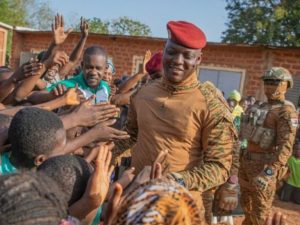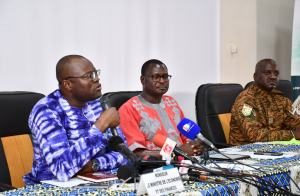DRC / The war in North Kivu: When the United States wants to become more involved in mediation

On Thursday, July 4, 2024, the United States celebrates its 248th Independence Day.
During this celebration, U.S. Ambassador to the Democratic Republic of Congo (DRC), Lucy Tamlyn, reiterated her country’s commitments, particularly concerning the social, security, and political situation in the DRC, a partner nation.
The American diplomat acknowledged that among the common national and global priorities between the DRC and the USA, peace remains paramount, especially in the eastern part of the country, which has faced escalating insecurity for years.
This instability has been exacerbated by Rwanda’s alleged support for the M23 rebellion, which has been expanding its influence in North Kivu for the past three years.
“Everything begins with peace. Aware of the urgency to find peaceful solutions to the multiple conflicts in eastern DRC, the United States is committed to using its diplomatic tools and influence to promote dialogue and ensure the success of the Luanda process. In line with the values and generosity of its people, the United States will continue to be at the forefront of providing vital assistance to the millions of displaced persons in the DRC,” stated Ambassador Tamlyn.
Recently, the security situation in the DRC has been marked by the capture of Kanyabayonga, Kayna, Miriki, and Kirumba in the Lubero territory.
This area had previously been spared from M23 activities. This takeover has significant strategic implications, both militarily and humanitarianly.
To end the violence, the Luanda process outlines several key steps, including a general cessation of hostilities, particularly M23’s attacks against the FARDC and MONUSCO.
It also calls for M23 to withdraw from occupied areas and return to its initial positions on Mount Sabinio in DRC, under the supervision of FARDC, the Regional Force, and the ad hoc Mechanism in collaboration with MONUSCO.
Additionally, it demands an end to all political and military support for M23 and other armed groups, both local and foreign, operating in eastern DRC and the region. The process also includes the return of displaced persons to their homes.
These initiatives mark a significant effort by the U.S. and the international community to address the ongoing conflict and support stability in the DRC.












